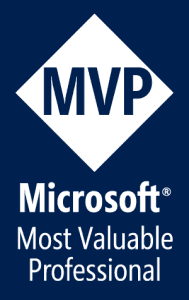The "Inner Circle" syndrome and MVP Program
July 21, 2016
After an overwhelming response to my last week post about the lack of diversity and inclusion in the technical communities, I wanted to speak about a specific diversity problem in more detail.
This problem is the "inner circle" syndrome.
As I mentioned in the previous post:
Even in the Spanish community, I’ve been mostly involved with the people I know well, mainly the Spanish MVPs and user group leaders. We know each other as we always hang around the same events, and thus unintentionally we create an “inner circle” in the community that makes it difficult for new people to come inside. It’s not that there aren’t any new community members, but it’s more of a mental barrier of always having “the usual suspects”. I have heard several comments lately from bright technical people that don’t submit to events because “there are always the same guys” speaking there.
The "syndrome" is the feeling or an opinion, backed by some evidence, that in technical communities there is a small core of people who share a disproportionally large amount of the "spotlight", this being sessions in technical events, articles, publications. I have received many, many comments of technically proficient people that don't bother to propose a talk because "it's always going to be the same people chosen for the sessions".
Let's go deep into the problem, shall we?
It's a small community
The technical communities are usually led by a small group of people, who are motivated enough to invest their time and efforts into providing value for the rest of the members of the community. By its own nature, this is something altruistic and we can't expect everyone to be a community leader. So, the number of the people actively leading a community is low and there's no problem with that.

At the same moment, the fact of being a leader in a technical community also shapes another community of sorts: the community of community leaders. I suspect that there is a natural disposition to mingle with those who are like us. It's not a problem, per se. I benefit from interacting with other community leaders, for example, sharing strategies and tips on how to have a more successful community or how to drive attendance and awareness for our events. That's the good part.
The bad part is that, if left unchecked, it's easy to mistake the community of our peers (community leaders) for the community at large. It can lead to the "inner circle" syndrome if we do nothing to include checks and balances against it.
How you get accepted to speak at events?
If there's one measure of the public perception of an "expert" in a technical community, that's speaking at technical events. Those people are usually recognized or taken by the rest of the technical audience as the ones who excel on something in their respective domain of knowledge.
However, there are many more people knowledgeable about something than speakers at the events. It's a matter of combining several characteristics:
- Being knowledgeable about something
- Having sufficient skill (and bravery) to speak in public
- Being aware of an event where your contribution can be welcome
- Actually submitting a proposal to talk at the event
- Having been accepted to speak at the event
In a 100% meritocratic world, this would be a pure number's game. However, in the real world there are unseen obstacles to this straightforward process.
Once you fulfill the condition 1, you have to acquire skills about speaking in public. Many people don't come forward at this step, as public speaking is something very stressful for mostly an introvert population. (Introversion is highly correlated with abstract thinking capacity we need to understand computers, so our technical communities are necessarily skewed to the introvert half of the population).
Let's say you have the skills to speak. How do you become aware of a prospective event (the condition number 3)? In many cases, it's a random thing. Usually, you read it on Twitter or a technical blog you follow. The "inner circle" members have an advantage here, because if you are already in the community "inner circle", chances are that you already know about the event either because it's organized by your peers or because somebody mentions in the conversation.
The condition number 4 requires you to choose a topic and craft a cohesive and appealing proposal for your talk. You need some marketing advice in order to find that what's unique about your talk and you have to "sell" it to the event decision board. This is another skill in which the most of the technical audience are not well-versed.
Finally, the last barrier is getting accepted to speak. If you have a good proposal, your chances are better. But the sad truth is that if you are part of the "inner circle", your chances are SO much greater. Sad but true.
Why is that?
The people choosing your talk are probably the people who are your acquaintances or friends. It's a small community we are talking about, and we mostly know each other. When you have a talk from someone you know (and trust) as opposed to a talk by someone you haven't heard of, then it's just natural to lend more credibility to your friends. It's our human nature. And it's detrimental to our community diversity.
Also, the number of speaking slots is usually always much less than the number of prospective speakers. Due to this pressure, the selection board tries to "stick to the well-known" and minimize the risk.
We have to tread carefully not to close the doors on the any prospective contribution, and the fact of not being "known" in the community is such a huge handicap. The mere fact of having someone in the "inner circle" to rely on and to ask for advice is the most frequent way I've seen for the people to become speakers. I've done it, a couple of times. But, that's not the way I'd want it to be in the future.
The trouble with MVP program in the technical community
And here I explicitly mention the Microsoft MVP (Most Valuable Professional) program as a factor in this imbalance of speaking sessions. I'm a current MVP, and I speak out of the knowledge of how things are run in our local community (Spain and Europe).

The MVP program is an award (not a certification, not an entitlement) for past year contributions (posts, articles, speaking sessions, open-source contributions etc) in the technical community that aligns with one or more Microsoft products or technologies. It's awarded every year.
That's the good part.
However, MVPs represent only a portion of the valuable community leaders and contributors (I suppose that's why it's called "Most Valued" though). For starters, there is a limited number of MVPs per category and per region. The evaluation criteria are opaque (even though you can nominate yourself or other people) and there is no formula that let's you know if or why you are accepted or rejected as an MVP. If I'd change one thing in the MVP program, I'd make the criteria and the nomination process more transparent. I don't think that it should be totally objective (because it could be gamed), but I'd like to see the explanations about the selection results for each MVP. Until then, the rest of the community can only take educated guesses and fuel rumours about how the whole process works. More transparency will bring more accountability to the program, in my opinion.
Additionally, the MVP Award in the Microsoft technical community is almost a guarantee that you are in the "inner circle". Your sessions proposals are going to weigh more in the event selection boards, you are going to be in contact with other MVPs and you'll be aware of more community engagements. However, now you have a vested interest to keep being an MVP so you will submit to those events, knowing that your MVP status makes it easier to keep it. It's much more easier to keep your MVP status than to get one. It's not that the entry barrier is high (which is true) but the fact that the advantage the renewing MVPs have over you is so much greater.
Don't get me wrong. I think that MVP program is very valuable, both to the community and to Microsoft, but it's easy to misrepresent it and to mistake the MVP community for "the whole community". You're going to think of the fellow MVPs as your "inner circle" in the community and you're going to reap the benefits. It's not fair, but it's real.
Ok, how should we fix it?
I wish I knew!
Notwitstanding that, I can suggest some possible actions.
First and foremost, the community leaders should be less of a rock star and more of a servant leader. It means serving the community and getting out of the way of others. You don't brag about you, you don't abuse the advantage you have as a community leader by grabbing more spotlight. You consciously move out of the spotlight to let the others be illuminated.
Our role as the community leaders is more to the people that are still outside the community than it is to the people already inside. We should focus on expanding the numbers and diversity of the community, not our own numbers.

We can also help the prospective new members. As leaders, we are exposed to potential valuable contributors more than the average community member. We should act as a benevolent gatekeeper that brings people in instead of letting them out. The feeling of "not being one of us" that trickles down in the technical community, is a very strong barrier to entry. I don't think that it's something we do on purpose, but it has a real effect. We should be aware of it and correct for it. How?
- Mentor other community members that show potential value
- Teach soft skills such as public speaking, personal branding and community engagement, not only technical stuff
- Spread the word about potential speaking and engagement opportunities. Make a goal to bring in one new speaker for every event in your expertise domain. Help them writing their proposal and help them with the session preparation if you can.
- Make the proposal selection a blind process. Strip the biography from the submission and let a board of peers rank the proposals for their merit, not for the speaker.
- Be conscious about your unfair advantage as a community leader. Concentrate your contributions to non-competitive channels (your own blog, GitHub, magazines and selected events) and resist the urge to cover all possible outlets. Don't be a rock star! If you really have something to tell, help organize your own event ;-)
- If you are organizing an event, reserve a sizable portion of the agenda for first-time speakers and traditionally underrepresented communities. Don't let the "same old faces" steal the show. Even if it feels lowering the quality of the agenda, it's the other way round. You are strengthening it.
Microsoft can also do a lot about fixing the "inner circle" syndrome:
- Make the MVP nomination process more transparent and accountable. Not everyone who applies should be an MVP, but we really need more transparency around the process to make the "inner circle" dissappear. Explain why someone is awarded and someone else is not.
- Reserve slots for first-time speakers and underrepresented communities at your events
I'm really looking forward for comments on this issue. Am I being right? Wrong? Misled? Please use the form below to contribute to the discussion.